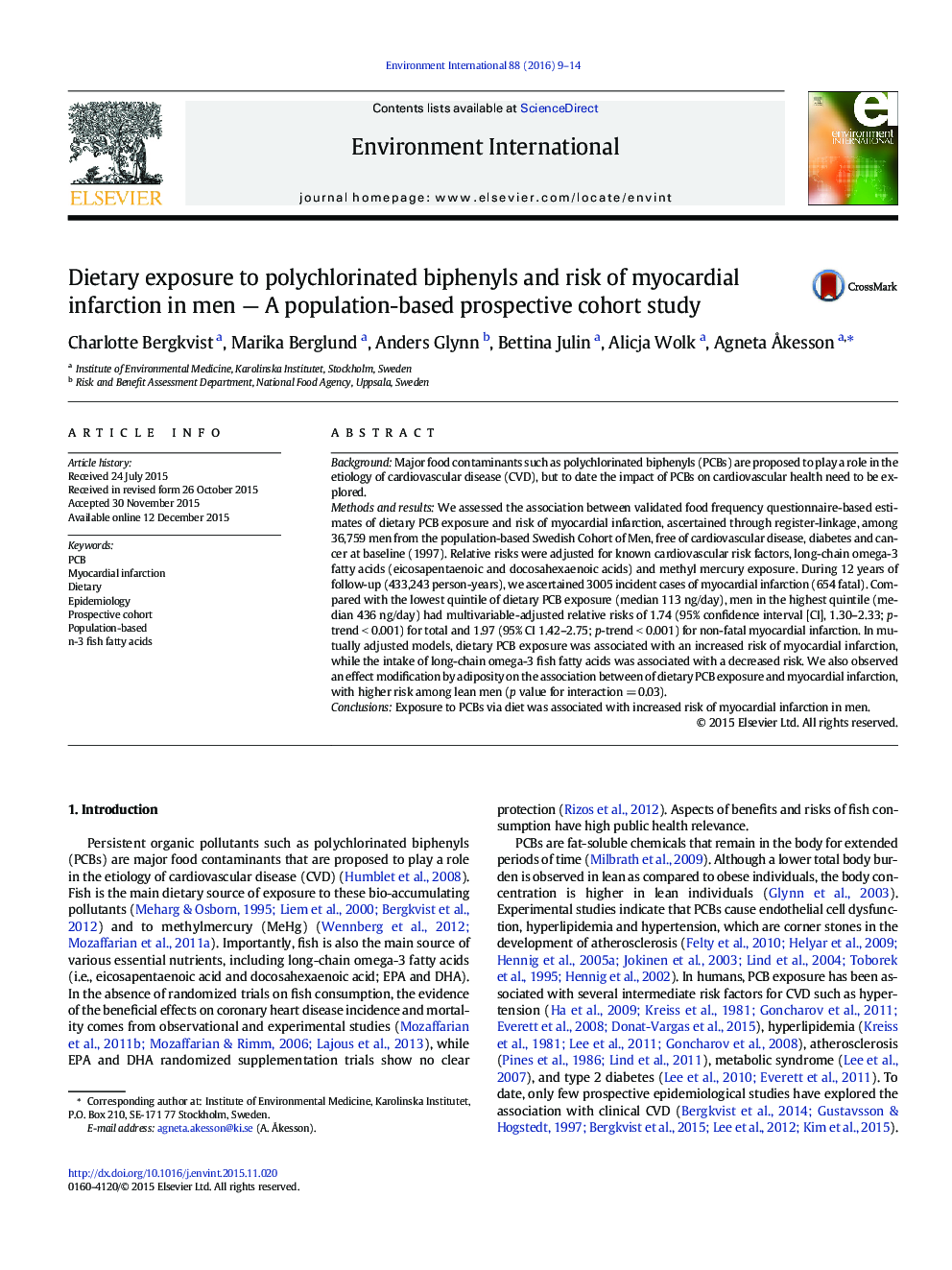| کد مقاله | کد نشریه | سال انتشار | مقاله انگلیسی | نسخه تمام متن |
|---|---|---|---|---|
| 6313329 | 1619040 | 2016 | 6 صفحه PDF | دانلود رایگان |
- Polychlorinated biphenyl (PCB) exposure may counteract beneficial effects of fish.
- PCB from diet was associated with higher incidence of myocardial infarction (MI).
- The association was modified by central adiposity.
- Intake of long-chain fish fatty acids was associated with lower incidence of MI.
- The net benefit of fish consumption is dependent on the PCB contamination.
BackgroundMajor food contaminants such as polychlorinated biphenyls (PCBs) are proposed to play a role in the etiology of cardiovascular disease (CVD), but to date the impact of PCBs on cardiovascular health need to be explored.Methods and resultsWe assessed the association between validated food frequency questionnaire-based estimates of dietary PCB exposure and risk of myocardial infarction, ascertained through register-linkage, among 36,759 men from the population-based Swedish Cohort of Men, free of cardiovascular disease, diabetes and cancer at baseline (1997). Relative risks were adjusted for known cardiovascular risk factors, long-chain omega-3 fatty acids (eicosapentaenoic and docosahexaenoic acids) and methyl mercury exposure. During 12 years of follow-up (433,243 person-years), we ascertained 3005 incident cases of myocardial infarction (654 fatal). Compared with the lowest quintile of dietary PCB exposure (median 113 ng/day), men in the highest quintile (median 436 ng/day) had multivariable-adjusted relative risks of 1.74 (95% confidence interval [CI], 1.30-2.33; p-trend < 0.001) for total and 1.97 (95% CI 1.42-2.75; p-trend < 0.001) for non-fatal myocardial infarction. In mutually adjusted models, dietary PCB exposure was associated with an increased risk of myocardial infarction, while the intake of long-chain omega-3 fish fatty acids was associated with a decreased risk. We also observed an effect modification by adiposity on the association between of dietary PCB exposure and myocardial infarction, with higher risk among lean men (p value for interaction = 0.03).ConclusionsExposure to PCBs via diet was associated with increased risk of myocardial infarction in men.
Journal: Environment International - Volume 88, March 2016, Pages 9-14
